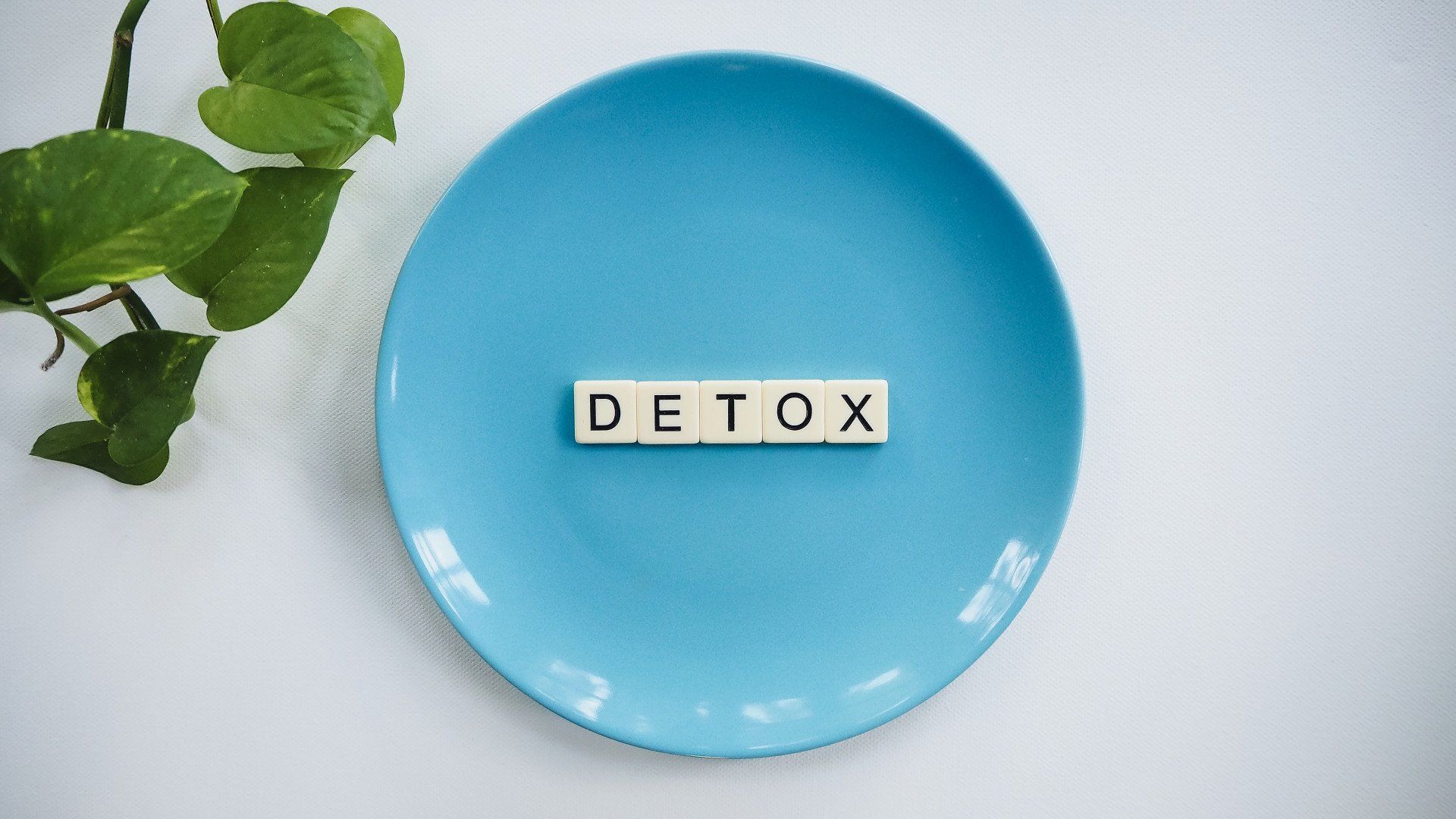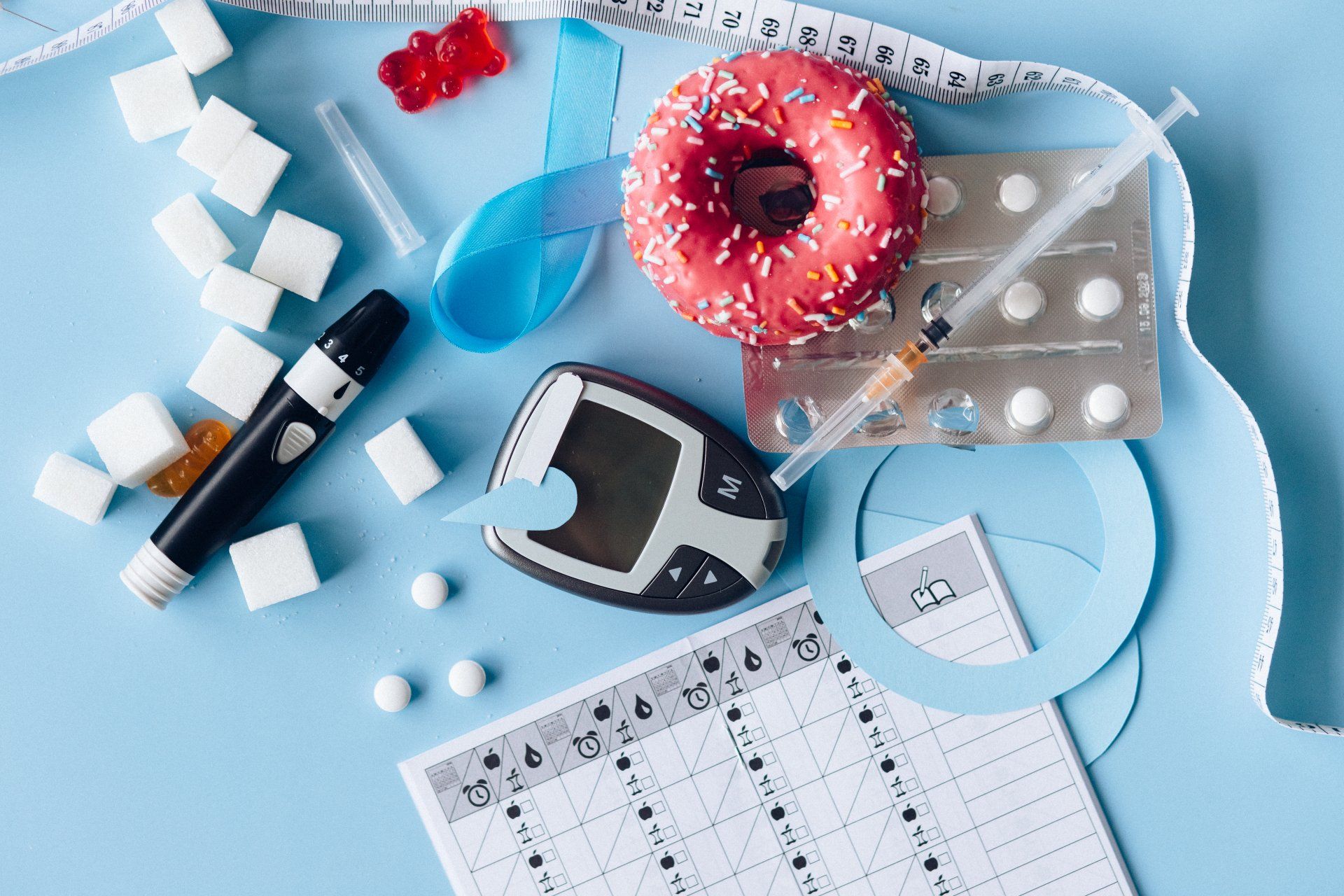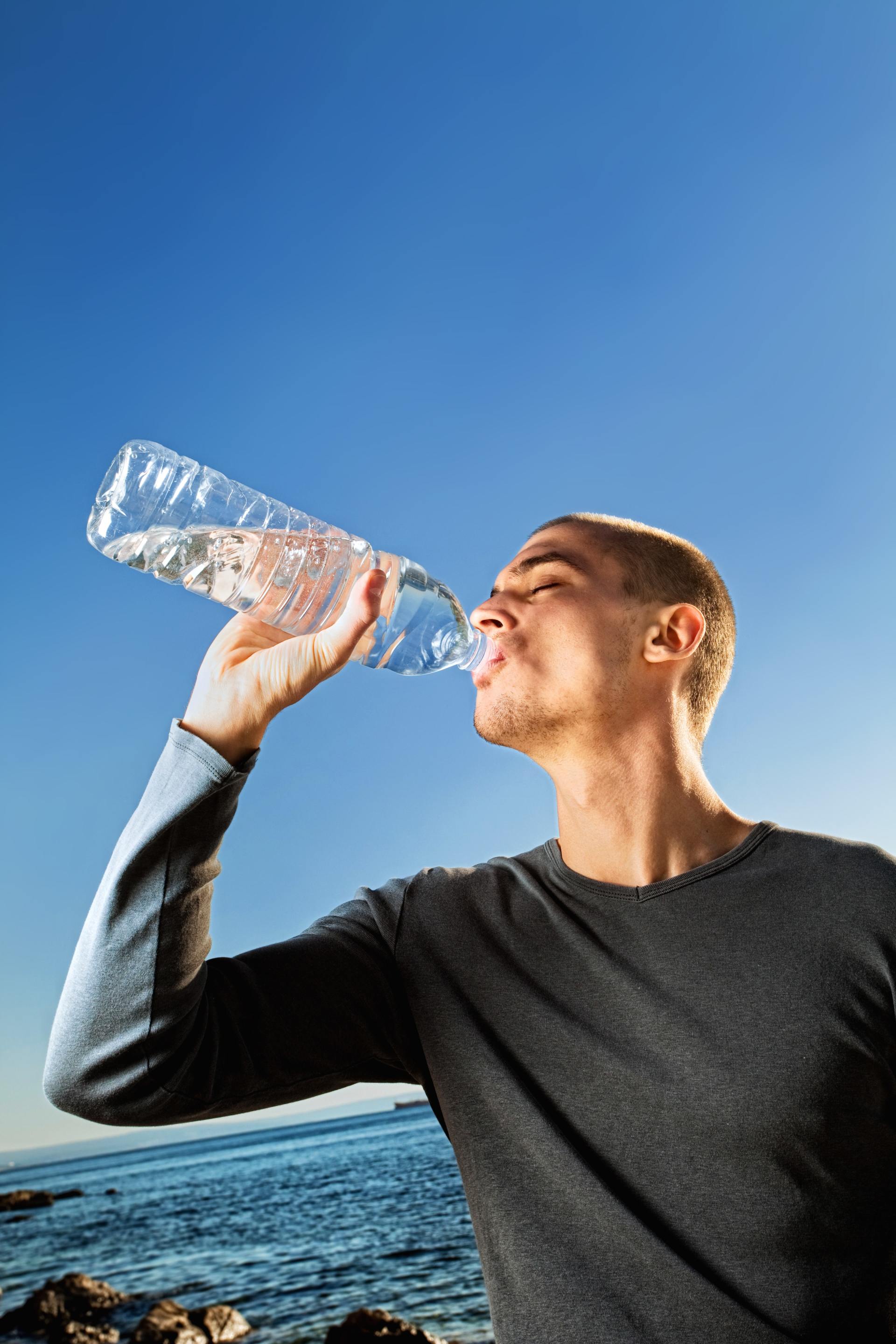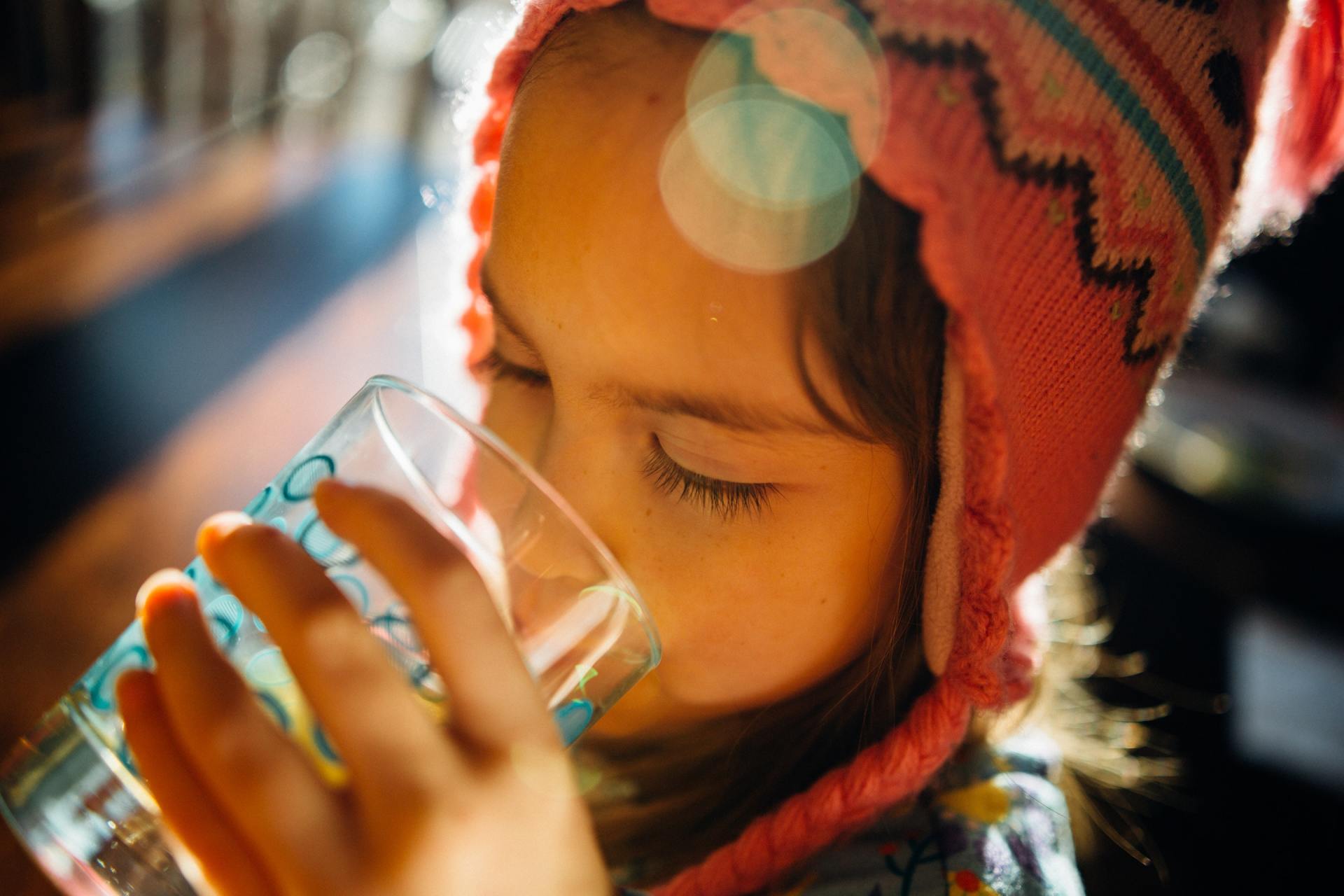Water – a vital nutrient
The human body can last weeks without food, but only days without water. The body is made up of 50 to 75 per cent water. Water forms the basis of blood, digestive juices, urine and perspiration, and is contained in lean muscle, fat and bones.
As the body can’t store water, we need fresh supplies every day to make up for losses from the lungs, skin, urine and faeces (poo). The amount we need depends on our body size, metabolism, the weather, the food we eat and our activity levels.
- Water is essential to most bodily functions.
- The body has no way to store water and needs fresh supplies every day.
- The best source of fluids is fresh tap water.
- A child will need different amounts of fluid, depending on their age and gender.
- Women should have about two litres (eight cups) of fluids a day, and men about 2.6 litres (10 cups).
- Women who are pregnant or breastfeeding need more fluid each day than other women.
- Dehydration can happen when the body’s fluids are low. It can be life threatening, especially to babies, children and the elderly.
Water in our bodies
Some facts about our internal water supply include:
- Body water content is higher in men than in women and falls in both with age.
- Most mature adults lose about 2.5 to 3 litres of water per day. Water loss may increase in hot weather and with prolonged exercise.
- Elderly people lose about two litres per day.
- An air traveller can lose approximately 1.5 litres of water during a three-hour flight.
- Water loss needs to be replaced.
Importance of water
Water is needed for most body functions, including to:
- maintain the health and integrity of every cell in the body
- keep the bloodstream liquid enough to flow through blood vessels
- help eliminate the by-products of the body’s metabolism, excess electrolytes (for example, sodium and potassium), and urea, which is a waste product formed through the processing of dietary protein
- regulate body temperature through sweating
- moisten mucous membranes such as those of the lungs and mouth
- lubricate and cushion joints
- reduce the risk of cystitis by keeping the bladder clear of bacteria
- aid digestion and prevent constipation
- moisturize the skin to maintain its texture and appearance
- carry nutrients and oxygen to cells
- serve as a shock absorber inside the eyes, spinal cord and in the amniotic sac surrounding the foetus in pregnancy.
Water in our food
- Most foods, even those that look hard and dry, contain water. The body can get about 20 per cent of its total water requirements from solid foods alone.
- The process of digesting foods also produces a small amount of water as a by-product which can be used by the body. Water sourced this way can provide around 10 per cent of the body’s water requirements.
- The remaining 70 per cent or so of water required by the body must come from fluids (liquids).
What’s the big deal?
It’s common to hear that water is essential for your health. But why?
This substance makes up a majority of your body weight and is involved in many important functions, including:
- flushing out waste from your body
- regulating body temperature
- helping your brain function
You get most of your water from drinking beverages, but food also contributes a small amount to your daily water intake.
It helps create saliva
Water is a main component of saliva. Saliva also includes small amounts of electrolytes, mucus, and enzymes. It’s essential for breaking down solid food and keeping your mouth healthy.
Your body generally produces enough saliva with regular fluid intake. However, your saliva production may decrease as a result of age or certain medications or therapies.
It regulates your body temperature
- Staying hydrated is crucial to maintaining your body temperature. Your body loses water through sweat during physical activity and in hot environments.
- Your sweat keeps your body cool, but your body temperature will rise if you don’t replenish the water you lose. That’s because your body loses electrolytes and plasma when it’s dehydrated.
- If you’re sweating more than usual, make sure you drink plenty of water to avoid dehydration.
It protects your tissues, spinal cord, and joints
Water consumption helps lubricate and cushion your joints, spinal cord, and tissues. This will help you enjoy physical activity and lessen discomfort caused by conditions like arthritis.
It helps excrete waste through perspiration, urination, and defecation
- Your body uses water to sweat, urinate, and have bowel movements.
- Sweat regulates body temperature when you’re exercising or in warm temperatures. You need water to replenish the lost fluid from sweat.
- You also need enough water in your system to have healthy stool and avoid constipation.
- Your kidneys are also important for filtering out waste through urination. Adequate water intake helps your kidneys work more efficiently and helps to prevent kidney stones.
It helps maximize physical performance
- Drinking plenty of water during physical activity is essential. Athletes may perspire up to 6 to 10 percent.
- Hydration also affects your strength, power, and endurance.
- You may be more susceptible to the effects of dehydration if you’re participating in endurance training or high-intensity sports such as basketball.
- Negative effects of exercise in the heat without enough water can include serious medical conditions, like decreased blood pressure and hyperthermia. Extreme dehydration can cause seizures and even death.
It helps prevent constipation
- Eating fiber isn’t the only way to prevent constipation. It’s also important to maintain your water intake so your bowel movements contain enough water.
- If you don’t consume enough water, magnesium, and fiber, you may be more likely to experience constipation.
- If you’re already constipated, you may find that drinking carbonated water as well as plain water can help ease your symptoms.
It aids in digestion
- Contrary to what some believe, experts confirm drinking water before, during, and after a meal will help your body break down the food you eat more easily. This will help you digest food more effectively and get the most out of your meals.
- The body adapts to changes in the consistency of food and stomach contents, whether more solid or more liquid.
It helps with nutrient absorption
In addition to helping with food breakdown, water also helps dissolve vitamins, minerals, and other nutrients from your food. It then delivers these vitamin components to the rest of your body for use.
It helps you lose weight
It has been shown that body fat and weight loss with drinking water in both overweight girls and women. Drinking more water while dieting and exercising may just help you lose extra pounds.
It improves blood oxygen circulation
Water carries helpful nutrients and oxygen to your entire body. Reaching your daily water intake will improve your circulation and have a positive impact on your overall health.
It helps fight off illness
Drinking enough water can help prevent certain medical conditions. These include:
- constipation
- kidney stones
- exercise-induced asthma
- urinary tract infection
- hypertension
Water also helps you absorb important vitamins, minerals, and nutrients from your food, which will increase your chances of staying healthy.
It helps boost energy
- Drinking water may activate your metabolism. A boost in metabolism has been associated with a positive impact on energy level.
- It has been found that drinking 500 milliliters of water boosted the metabolic rate by 30 percent in both men and women. These effects appeared to last over an hour.
It aids in cognitive function
Proper hydration is key to staying in tip-top cognitive shape. It indicates that not drinking enough water can negatively impact your focus, alertness, and short-term memory.
It helps improve mood
Not getting enough water can also affect your mood. Dehydration may result in fatigue and confusion as well as anxiety.
It helps keep skin bright
Adequate water intake will help keep your skin hydrated and may promote collagen production. However, water intake alone isn’t enough to reduce the effects of aging. This process is also connected to your genes and overall sun protection.
It prevents overall dehydration
Dehydration is the result of your body not having enough water. And because water is imperative to so many bodily functions, dehydration can be very dangerous.
Severe dehydration can result in a number of severe complications, including:
- swelling in your brain
- kidney failure
- seizures
Make sure you drink enough water to make up for what’s lost through sweat, urination, and bowel movements to avoid dehydration.
How much should you drink?
Being attentive to the amount of water you drink each day is important for optimal health. Most people drink when they’re thirsty, which helps regulate daily water intake.
General water intake (from all beverages and foods) that meet most people’s needs are:
- about 15.5 cups of water (125 ounces) each day for men
- about 11.5 cups (91 ounces) daily for women
- People get about 20 percent of their daily water intake from food. The rest is dependent on drinking water and water-based beverages. So, ideally men would consume about 100 ounces (3.0 liters) of water from beverages, and women, about 73 ounces (2.12 liters) from beverages.
You’ll have to increase your water intake if you’re exercising or living in a hotter region to avoid dehydration.
Other ways to assess hydration include your thirst and the color of your urine. Feeling thirsty indicates your body is not receiving adequate hydration. Urine that is dark or colored indicates dehydration. Pale or non-colored urine typically indicates proper hydration.
How to get enough fluid in your diet
If the idea of having to drink lots of cups of water a day doesn’t appeal, don’t worry – fluids include fresh water and all other liquids, such as milk, coffee, tea, soup, juice and even soft drinks.
Fresh water is the best drink because it does not contain energy (kilojoules) and is best for hydrating the body. Water from the tap is also mostly free and generally available wherever you go.
However, milk is about 90 per cent water and is an important fluid, especially for children. Just remember to choose full-fat milk for children under two years old and low-fat and reduced-fat varieties for everyone else.
Tea can also be an important source of fluid. Tea can help you meet your daily fluid recommendations, and is a source of antioxidants and polyphenols, which appear to protect against heart disease and cancer.
If you prefer to get some of your fluids from fruit, aim to eat whole pieces of fresh fruit instead of having fruit juice – you’ll still get the delicious fruity juice (fluids) but you’ll also benefit from the bonus fibre and nutrients while avoiding the extra sugar found in fruit juice.
Tips for drinking more water
- Add a squeeze or slice of lemon or lime, or some strawberries or mint leaves to plain water to add variety.
- Keep a bottle or glass of water handy on your desk or in your bag.
- Drink some water with each meal and snack.
- Add ice cubes made from fresh fruit to a glass of water.
Avoid sugary and artificially sweetened drinks
Try to limit intake of drinks containing added sugar. This includes sugar-sweetened soft drinks and cordials, fruit drinks, vitamin-style waters, flavoured mineral waters, energy and sports drinks.
Having sugary drinks provides additional energy (kilojoules) to the diet, but no other essential nutrients. There is strong evidence of the association between having sugary dinks and excess weight gain in both children and adults, as well as reduced bone strength and tooth decay.
Artificially sweetened drinks add very little energy (kilojoules) to the diet and therefore do not contribute directly to weight gain. However, artificially sweetened drinks still maintain the ‘habit’ of drinking sweet drinks. They may also lead to decreased bone density (as people may drink less milk) and contribute to tooth decay due to their acidity.
Dehydration
Dehydration occurs when the water content of the body is too low. This is easily fixed by increasing fluid intake.
Symptoms of dehydration
Symptoms of dehydration include:
- thirst
- headaches
- lethargy
- mood changes and slow responses
- dry nasal passages
- dry or cracked lips
- dark-coloured urine
- weakness
- tiredness
- confusion and hallucinations.
If dehydration is not corrected by fluid intake, eventually urination stops, the kidneys fail, and the body can’t remove toxic waste products. In extreme cases, dehydration may result in death.
Causes of dehydration
There are several factors that can cause dehydration including:
- not drinking enough water
- increased sweating due to hot weather, humidity, exercise or fever
- insufficient signalling mechanisms in the elderly – sometimes, older adults do not feel thirsty even though they may be dehydrated
- increased output of urine due to a hormone deficiency, diabetes, kidney disease or medications
- diarrhoea or vomiting
- recovering from burns.
Getting the right balance of fluid intake
Not drinking enough water can increase the risk of kidney stones and, in women, urinary tract infections. It can also lower your physical and mental performance, and your salivary gland function, and lead to dehydration.
But did you know that it is possible to drink too much water and cause a condition called hyponatraemia (water intoxication)?
Water intoxication (hyponatraemia)
- Drinking too much water can damage the body and cause hyponatraemia (water intoxication), although it is pretty rare in the general population.
- Hyponatraemia occurs when sodium in the blood, which is needed for muscle contraction and sending nerve impulses, drops to a dangerously low level.
- If large amounts of plain water are consumed in a short period of time, the kidneys cannot get rid of enough fluid through urine and the blood becomes diluted. Hyponatraemia can lead to headaches, blurred vision, cramps (and eventually convulsions), swelling of the brain, coma and possibly death.
- For water to reach toxic levels, many litres of water would have to be consumed in a short period of time.
- Hyponatraemia is most common in people with particular diseases or mental illnesses (for example, in some cases of schizophrenia), endurance athletes and in infants who are fed infant formula that is too diluted.
Fluid retention
Many people believe that drinking water causes fluid retention. In fact, the opposite is true. Drinking water helps the body rid itself of excess sodium, which results in less fluid retention.
The body will retain fluid if there is too little water in the cells. If the body receives enough water on a regular basis, there will be no need for it to hold onto water and this will reduce fluid retention.
The bottom line
Water is important to nearly every part of your body. Not only will hitting your daily recommended intake help you maintain your current state of being, it may even improve your overall health.
Here are some ideas for how you can be sure you drink enough:
- Carry a water bottle with you wherever you go. This way you can drink whenever the need strikes.
- Keep track of your intake. Aim to take in optimum amounts every day, a minimum of half your body weight in ounces.
- Pace yourself to approach half of your recommended consumption by midday. You can always finish about an hour before you plan to sleep.
Thank you for your support in reading this article and hopefully, you have found it beneficial.
"Providing Better Health Through Knowledge"


















